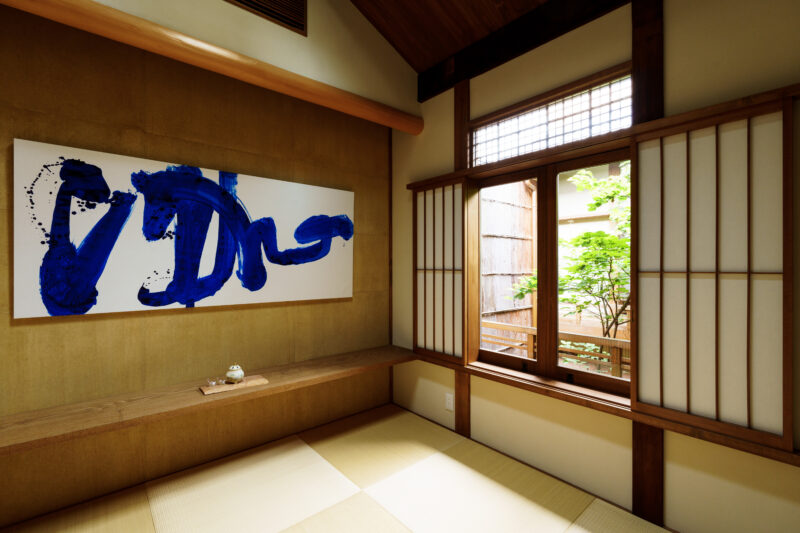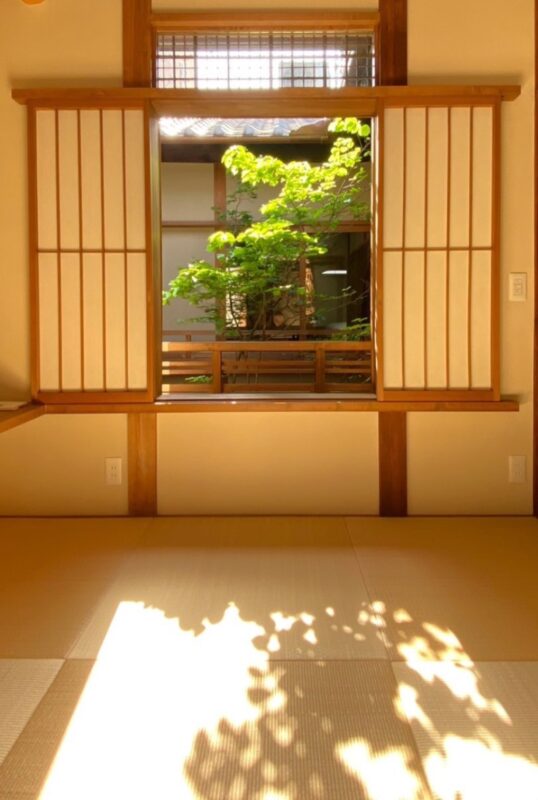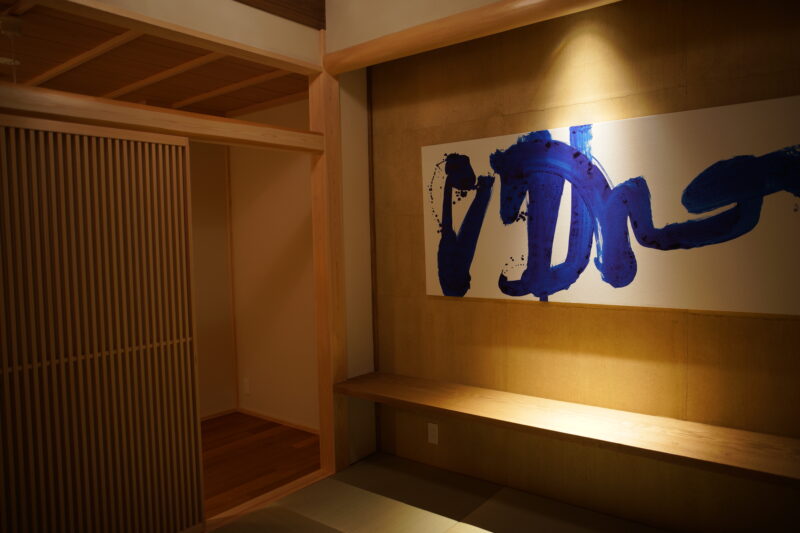
2024.07.10

二階の和室、中庭に面した窓から気持ちの良い朝日が差し込む部屋です。
和紙の壁にかけられた大きなアート。
これ水墨画なんですね!と驚かれることが多いのですが、青い墨で描かれてるのは漢字です。
中国では紀元前から使われていた「洗心」という禅語。
文字通り、心を洗い清めるという意味だそう。
偏見や固定概念からくる自己の「とらわれ」を洗う、慢心や嫉妬といったネガティブな心を清める。
禅語としての意味は解釈が様々ですが、ほとりの「洗心」はとてもシンプル。
「日々の心の疲れを洗い流す」
旅行に出て、ここに泊まり、日常の疲れをリフレッシュしてもらう。
中屋丹幸さんはそんな意味をこめてこの絵を描いてくださいました。
この和室はとても気持ちの良い朝日が差し込むお部屋。
ほとりで迎える朝、障子と窓をガラリと開けて、うーんと深呼吸してみてください。
丁寧に水拭きされた畳は素足にとても心地よく、それでいて背筋の伸びるような凛とした感触。
朝の陽ざしと、清らかな空気の中でヨガや瞑想をするにもぴったりのスペースです。

A Japanese-style room on the second floor, with a window facing the courtyard from which the morning sun shines in.
A large artwork hanging on the Japanese paper wall.
This ink painting is designed with Chinese characters.
It is a Zen word called “washing the mind,” which has been used in China since B.C.
It literally means to wash and purify one’s mind.
To wash away one’s own “captivity” from prejudice and stereotypes, and to purify the negative mind such as pride and jealousy.
The meaning of the word as a Zen term is subject to various interpretations, but “washing the mind” in hotori is very simple.
It means, “to wash away the fatigue of the daily mind.”
You go on a trip, stay here, and let go of the stress that comes from daily life.
Mr. Tanko Nakaya painted this picture with such meaning.
This Japanese-style room recieves very pleasant morning sunlight.
In the morning, open the shoji and window and take a deep breath.
The carefully wiped tatami mats are very comfortable and on your bare feet, yet you may feel some kind of sacredness.
It is a perfect space for yoga or meditation in the morning sunlight and clean air.
